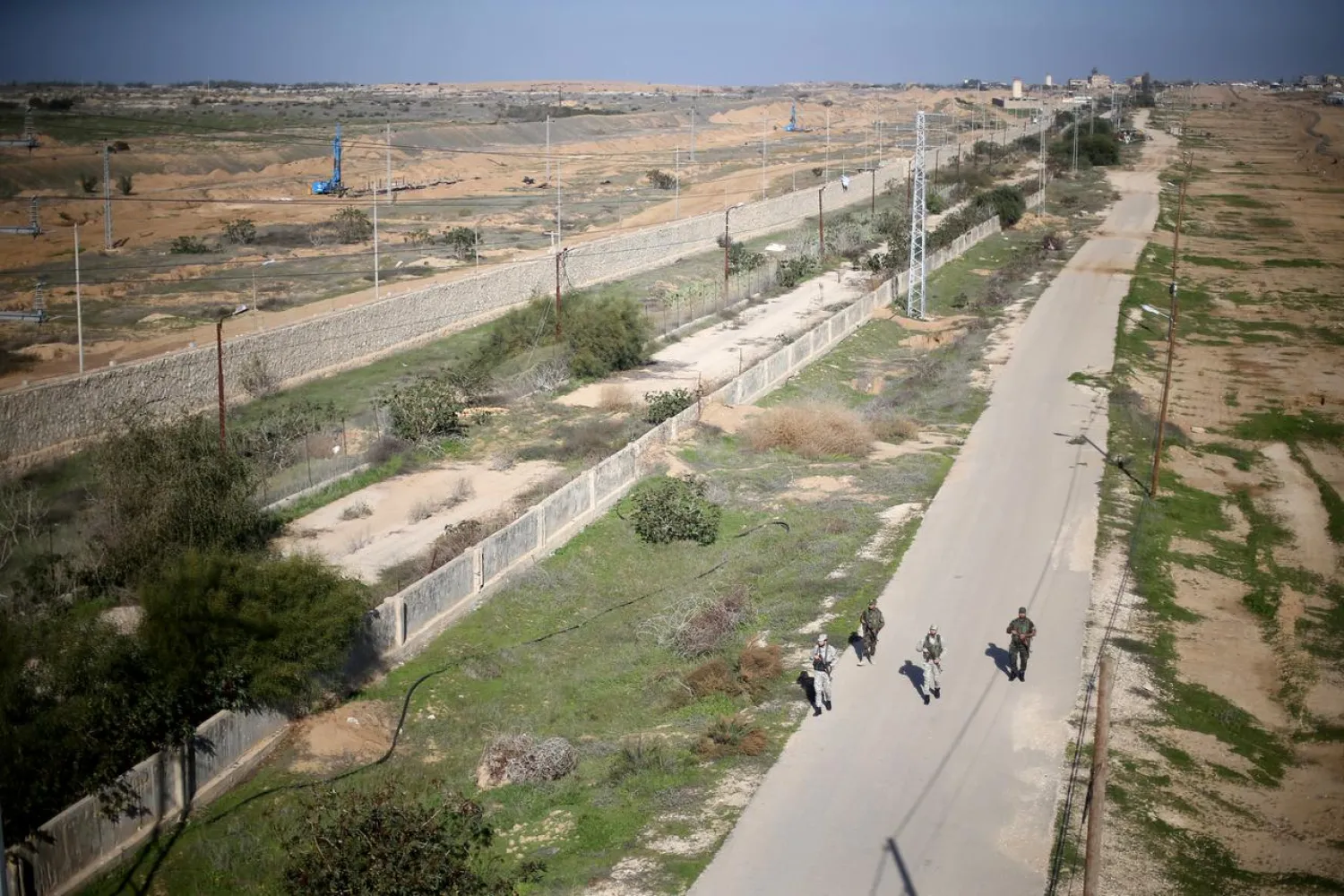Egyptian authorities have sped up efforts to construct a wall on the border with the Gaza Strip, in an attempt to end the infiltration of extremists to and from Sinai.
Palestinian sources in Gaza said the Egyptian army intensified its construction work, which it started in late January.
The construction intensified after an Egyptian intelligence delegation visited the Strip this week. The delegation was accompanied by an engineering team which visited the border region.
The 6-meter-high “separation wall” will extend along the border and reach five meters underground.
Israeli media said the construction will be completed before the end of 2020. The western part of the barrier will be merged with the Israeli system established under and above water in the Mediterranean Sea, to prevent divers from infiltrating into settlements near Gaza.
Palestinian media published photos showing the construction of the wall along the Gaza Strip.
Construction has accelerated significantly in the recent period and Egyptian authorities are working to finish the wall in the shortest possible time, according to local Palestinian sources.
The Hamas movement in Gaza cooperates closely with Cairo to end infiltration operations. In recent months, the movement has pushed more of its forces to the border to better secure the area.
Within two years, Hamas bulldozed several areas, installed barbed wire and cameras and began patrolling the border. Hundreds of its security personnel monitor the border with Egypt, as the movement seeks to crack down on ISIS elements in Sinai.
Hamas focuses on pursuing and arresting members of extremist organizations, and usually refers them to military trials before imprisoning them.
Field control forces, which include members of the al-Qassam Brigades and Interior Ministry, monitor the borders with Egypt. The Interior Ministry plays a direct role in securing the border, but al-Qassam Brigades occasionally intervene to secure the Rafah area to prevent “salafist jihadists” from crossing the border where they operate with ISIS in Sinai.









